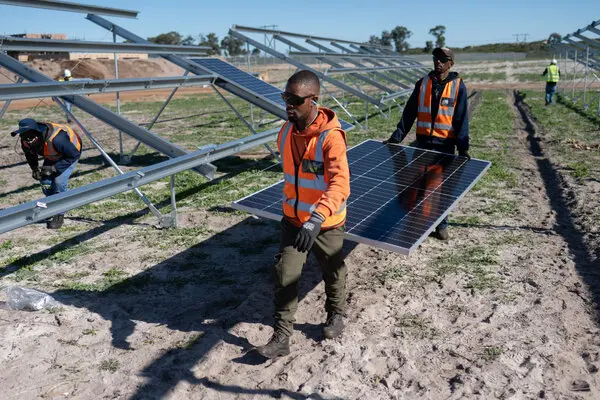
African countries are ordering more Chinese solar panels, with imports increasing by 60% in the 12 months through June.
- African nations amplified solar panel imports from China by 60% in the year through June.
- China remained the dominant global supplier, producing about 80% of the world’s solar panels in 2024.
- The number of countries importing 100 megawatts of solar capacity or more increased from 15 to 25.
- Solar panel importation could significantly supplement electricity generation in various African nations.
African countries are ordering more Chinese solar panels, with imports increasing by 60% in the 12 months through June, according to the climate think tank Ember.
That is because China produced 80% of the world’s solar panels in 2024, and is by far the biggest exporter. Over the period, 25 African nations imported at least 100 megawatts of solar capacity, compared with 15 countries a year earlier.
DON’T MISS THIS: Russia moves to displace France in uranium-rich Niger with nuclear power proposal
South Africa remained the continent’s largest buyer, while 20 other countries recorded record inflows of solar technology. Total shipments rose to 15 gigawatts of capacity, up from 9.4 gigawatts a year earlier, Ember said, citing Chinese customs data.
Beyond South Africa, imports have tripled over the past two years. Nigeria surpassed Egypt as the second-largest market, generating 1,721 megawatts over the past year, followed by Algeria in third place.
South African demand, which spiked during power outages in 2023, has since slowed as state utility Eskom Holdings SOC Ltd. stabilised electricity supply.
Solar’s impact on power generation
In Sierra Leone, solar panel imports over the past 12 months could generate power equal to 61% of the nation’s total reported electricity output in 2023 if fully installed, Ember said.
DON’T MISS THIS: 10 major factors driving positive and negative perceptions of Russia in Africa
They would add electricity equivalent to over 5% to total reported electricity generation in 16 countries.
According to the report, Solar panel imports will reduce fuel imports. The savings from avoiding diesel can repay the cost of a solar panel within six months in Nigeria, and even less in other countries.
In nine of the top ten solar panel importers, the import value of refined petroleum eclipses the import value of solar panels by a factor of between 30 to 107.












